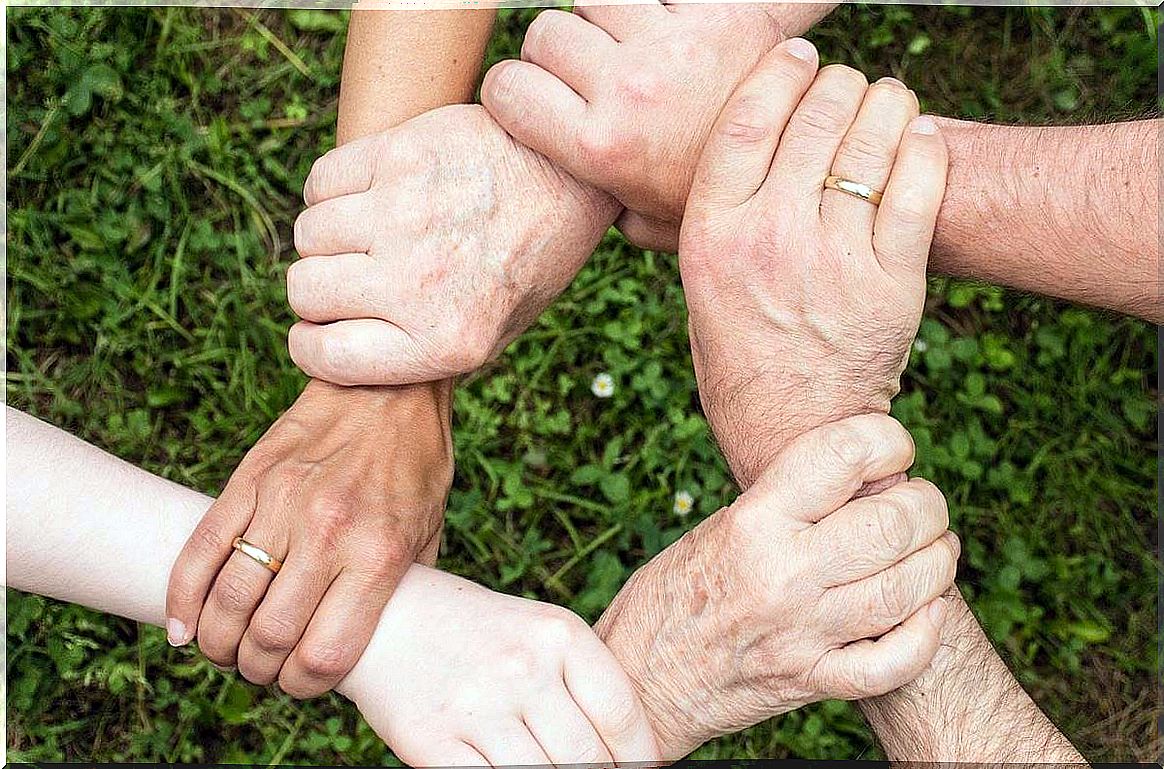Why Does My Family Always Fight? (intergenerational Injuries)

Why does my family always fight? Siblings who can’t stand each other, grandparents who don’t talk to their children, uncles we barely see once a year … There are family networks in which, in addition to the same blood or genetic code, discord and disagreements are also integrated.
It is true that each home is a world and that in every family tree there are broken branches, problematic figures and wounds that have not healed both in the trunks and in the roots. Everything has an impact on both the old and the new generations.
Thus, and although any of us are already living as an adult and walking through their own sphere away from the family fabric, there are threads that keep us attached to it. A genetic inheritance is integrated in us, an emotional legacy and invisible patterns of which, sometimes, we are victims.
Intergenerational injuries are also inherited. Factors such as past trauma, violence or mistreatment are still evident among that small social nucleus of which we are a part. We analyze it.

Why does my family always fight? Causes and triggers
Sometimes, we can see ourselves in dynamics as complex as they are painful. There are nuclear families (those formed by parents and their children) in which arguments and differences are common. This sometimes also extends to the extended family (grandparents, uncles, cousins …).
Meetings can be mined territory that always ends badly. Either on the mother’s side or on the father’s side, any of us can find ourselves in that situation, the one in which we wonder why my family always fights, why since I can remember I only see disagreements and tense moments.
Thus, growing up in a context in which we have witnessed these intergenerational conflicts often leaves a mark. There are those, for example, who do not know one of their grandparents because their father or mother did not speak to him. It may, in turn, that in the mind is the memory of those discussions between our uncles, the bad words and the reproaches thrown between one and the other …
All these are dynamics that erode and from which it is sometimes difficult to stay on the sidelines. However, why is it? What is usually the origin of these conflict situations? Intergenerational trauma
Unresolved intergenerational trauma
Howard Stein is a historian and professor emeritus at the University of Oklahoma. Something interesting that he does not point out in his works is that, often, at some point in our family past, someone suffered a traumatic event. Violent deaths, disasters, accidents, rapes, attacks …
These adverse events are not always adequately overcome. They are “short-circuited” duels that stagnate and pass collectively from one generation to another. Sometimes, the pain turns into anger, anger at that loss suffered and that, in some way, determines in turn the upbringing of children, impregnating it with deficiencies, disaffection, and unresolved knots …
All this can lead to a frozen pain that, far from being resolved, spreads within the family, creating tension between one and the other.
Family grudges
If we ask ourselves as children why my family always fights, perhaps the origin is in the grudges harbored in the past and not overcome. They are silenced bitterness between our uncles, disagreements between our parents and grandparents, ties through which resentment runs in that extended family of which we are a part.
Pride prevents forgiveness from giving way. This causes tension, bad words, hints that hurt and that end in arguments to appear.
Thus, studies, such as the one carried out at Hope University (Michigan), demonstrate how resentment effectively distorts relationships and makes them problematic. Furthermore, we know that this emotion has a serious impact on health.

Why does my family always fight? Inherited patterns of aggressiveness
Factors such as abuse, aggressiveness, and violent behavior can be another explanation for why my family always fights. It is an element that can sometimes pass from generation to generation: children abused by their parents can repeat this same behavior with their partner or their own children, thus perpetuating the same dynamic of suffering.
Thus, studies such as those carried out at the University of Barcelona indicate that although violence depends on many factors such as social, educational and cultural, we cannot ignore the biological and genetic aspects.
It has been discovered that there is a correlation between attention deficit hyperactivity disorder and aggressive behavior, something that can be inherited from parents to children. Something that also leads in many cases to a major depression.
Therefore, in many cases, behind these clashes between the family, these discussions, tensions and constant reproaches, a psychological disorder can be camouflaged in many cases. All this makes us understand that they are elements that can be treated.
Each factor listed here can be addressed through therapy. Families can sometimes be, as we well know, authentic factories of suffering, especially if they have not healed their past, if they have not resolved and addressed those wounds of yesterday that are still open in the present and that condition the well-being of all their families. members.









